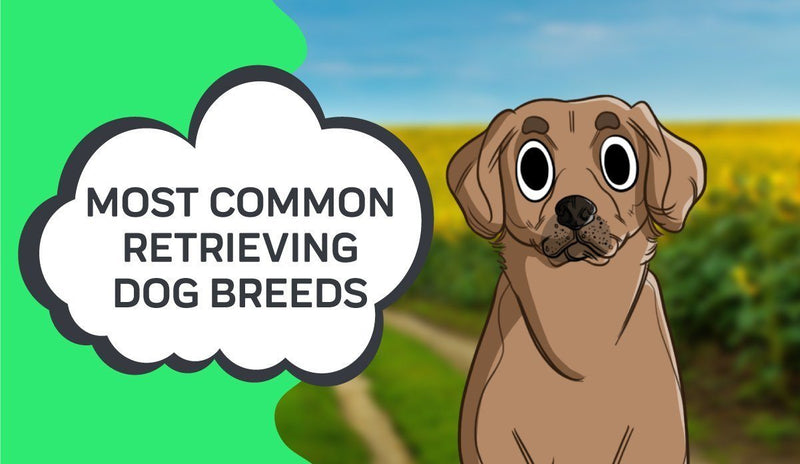
What Are Corgis?
Corgis have become increasingly popular among pet owners in recent years due to their celebrity status on the internet. They are short with a long body and have muscular thighs - similar to a dachshund. They also have a thick double coat of fur.
This combination of features makes the Corgi look comically delightful and, in the eyes of many prospective pet owners, absolutely lovable. They come in a variety of colors, including fawn, sable, black and tan, and red. They're usually 10-12 inches tall, weigh between 25 and 40 pounds, and live around 12 to 15 years.
The Pembroke Welsh Corgi was originally bred for cattle herding, hence their unique stature. They were first bred in the Pembrokeshire region of Wales. Corgis are one of the smallest breeds of herding dogs in the world, making the origins of the breed just as unique as their appearance.
The Temperament Of Corgis
Corgis are an exceptionally affectionate dog breed and do well with all sorts of families, making them an ideal pet for most homes. One of their most popular personality traits is that they make great watchdogs. While they aren't particularly formidable, they have a loud bark and aren't afraid to use it!
That said, Corgis are rarely - if ever - aggressive. They're extremely intelligent thanks to their herding roots and love "working" with a family - when you're doing chores they will happily follow you around.
Corgis love attention and don't do well when left alone for long periods. A normal workday isn't likely to cause anxiety for your Corgi, but leaving them alone for days at a time can create undue stress for them.
Grooming Routines For Corgis
Corgis have a double coat, which means that they shed a lot of hair all year round. They have two shedding seasons - the spring and fall - where they will shed even more severely. While grooming won't completely prevent loose hair from spreading across your house, it will help.
A typical grooming routine for a Corgi should involve light brushing daily. This will keep your dog from getting too hot and completely covering you with hair every time you go to pet them. During their heavier shedding seasons, bathing them will be a more effective way to manage their grooming needs.
Corgi Energy Levels
Because Corgis were originally herding dogs, they are wired to run and play in large open spaces all day long. Since Corgis make better indoor pets than outdoor pets, they won't have the same kind of space to play in when kept in most people's homes.
This means that your pet Corgi is likely to be rambunctious and energetic at all times. Your Corgi is going to need regular, daily exercise to stay happy and emotionally sound. Otherwise, they might start engaging in destructive behaviors to compensate.
Because of their high levels of energy and intelligence, they make great dogs for herding classes and agility courses. Though it's important to remember that because of their short legs they won't be able to keep up with you during a long run or bicycle ride.
Trainability
Corgis are an extremely trainable breed thanks to their high intelligence, love for attention, and eagerness to please. However, they can be pretty bossy and independent in spite of their small size, so make sure that you are always firm and patient with them.
Like any dog, leash training them early on is a must. They will also need to be socialized early on to avoid having issues with interacting with other animals and people. Once you've got each of these out of the way, you can move on to general obedience training.
Additional types of training that can be helpful for Corgi owners are training them to stop barking on command and to let go of things when they are biting them. You can train them to stop biting things by playing tug of war with them and teaching them when to release what they are playing with.
Where To Adopt A Corgi Puppy
Because Corgis are such popular pets, they are relatively easy and affordable to adopt. Adopting a Corgi means you won't have to worry about some of the negative behaviors they exhibit as puppies (like pottying in the house and biting), which can make integrating a new dog into your home much less stressful.
Many prospective pet owners considering adoption tend to worry about adopting a dog with behavioral issues from a traumatic past. However, the truth is that the majority of dogs are released to adoption facilities simply because the owner changed their mind on wanting a dog.
The downside of getting a Corgi from an adoption center, though, is that they might not have the exact color, gender, or age of Corgi that you're looking for. Still, looking to adopt a Corgi before seeking out a breeder is always a great first step in your journey as a Corgi owner!
Finding A Breeder
If you've decided that purchasing a Corgi from a dog breeder is the way to go, just be sure that you purchase your Corgi from a responsible breeder. It's not uncommon for people to pose as legitimate dog breeders when they are actually puppy mills or scams.
The best way to avoid these kinds of Corgi sellers is by researching the breeder you are purchasing from beforehand to make sure that you are buying from a legitimate source. Corgi prices typically range from $600 - $1200.
Things To Know Before Purchasing A Corgi
Before purchasing any new dog, it's important to be equally aware of the negative aspects of ownership as it is the positive aspects because once you own the dog, you're going to have to live with the good and the bad. Here are some of the less pleasant aspects of Corgi-ownership.
THEY BARK. A LOT.
Every dog barks to some extent, but few dogs bark as much as Corgis do. Corgis are known for making great watchdogs - and they do - but the drawback of that is that they are loud as often as they can be.
And a Corgi's barking isn't limited to things that are actually potential threats, like strangers at the door or other animals in the yard. They are known to bark at anything passing by in the street, any changes in your neighborhood, and so on. They're bred to bark and will find anything that gives them an excuse to do it.
To see if you're prepared for this, try spending time around a friend's dog that barks frequently to see if it's something you can put up with. If you live in an apartment building, you may have to train your Corgi to stop barking on command. This doesn't mean that they won't still bark, just that you can stop them once they start.
THEY AREN'T LAPDOGS
Because of their small size, many owners adopt Corgis thinking that they will make great lapdogs. While they are the perfect size for it, most Corgis do not like being held for extended periods. This goes back to their herding heritage, where they are constantly on the ground performing tasks and keeping watch.
When your Corgi is in your lap, arms, or bed, they aren't able to effectively keep watch over the home and patrol the perimeter, as it were. So while you may get lucky and find a Corgi that doesn't mind the extra attention, most will feel that it gets in the way of performing their duties.
THEY'RE SMART
Like all herding dogs, Corgis are a very intelligent breed. While this can be exciting an engaging for owners who have never lived with an intelligent dog before, it can also come with new challenges that most pet owners don't normally experience.
Most people hear the words "intelligent dog," and think of all the things they'll be able to teach their dog. While these kinds of dogs are highly trainable, they're also able to learn and teach themselves - even if it's things you don't want them to learn.
A simple example of this is that they may figure out that you can't catch them if they run off. Once they realize this, they'll simply run from you anytime they don't want to be caught.
THEY CAN BE BOSSY
Another personality trait of Corgis that the average dog owner has probably never experienced before is their bossiness. Corgis tend to have a clear idea of what they want and if they know that you can get them what they want, they will take advantage of it.
Some of the ways that Corgis exhibit bossy behavior is by demanding attention by nudging you, demanding treats by barking at you, pulling or pushing you, and so on. While some owners will find this behavior endearing, others will probably find that it wears thin after a while.
Corgis also have bossy habits that are more controlling than others. This includes standing still during walks when you walk away from a direction they want to go, barking rapidly until you give in to what they want, and moving things around the house to get their message across.
THEY SHED
After barking, this is probably the most troubling aspect of owning a Corgi. They have a double coat, which means that they shed like crazy. They technically only have two shedding seasons, in the spring and fall, though they shed more heavily than most breeds at all times.
When your Corgi is going through a shedding season, you'll find balls of shed fur around the house, under furniture, and coating your clothes. You will probably notice loose fur stuck in your Corgi's coat that hasn't been shed yet and try to pull it out, only to find that it is connected to a seemingly endless stream of undercoat.
The one upside to a Corgi's shedding is that if you live in a warmer environment, their second shedding in the fall will likely not be as bad as it is in the spring. The reason for this is that they will naturally shed the majority of their undercoat leading up to the summer to deal with the warm climate.
THEY DO BEST IN COOL WEATHER
And that brings us to the next point, which is that Corgis do best in cooler weather. They are originally from a pretty cool, temperate climate, and will always be happiest in similar environments.
Now, that doesn't mean people in warmer environments can't be Corgi owners, just that you'll need to be conscious of the fact that they can't be in the heat for too long. During the summer and spring, you won't be able to take your Corgi on walks for too long without risking them overheating.
If you do live in a warm environment, make sure that you keep your Corgi indoors in a cool place when it's hot outside.
THEY ARE INDOOR DOGS
While some dog breeds are perfectly content to live in the backyard the majority of their lives, Corgis are not these kinds of dogs. The first reason goes back to the point above, which is that Corgis don't do well in warm weather. The invention of air conditioning is just as beneficial to Corgis as it is to us.
The second reason is that Corgis are extremely social animals. Any Corgi owner will tell you that a Corgi will require almost constant attention. They love to be pet, played with, to follow you around, and share a space with you.
Corgis don't tend to develop separation anxiety when you leave the house for work or errands, but living away from you in the backyard can take its toll on your pet Corgi. Similarly, if your family tends to spend most of its time shut away in separate rooms, a Corgi might not be the ideal dog for you.
PUPPIES WILL NIP THEIR OWNERS
It's not uncommon for dogs to nip and playfully bite their owners when roughhousing, and most of the time it isn't a big deal. Corgis engage in this kind of behavior more often than most dogs because of their herding background; they were bred to nip at the heels of other animals.
A grown Corgi will still nip at their owners, but they're usually smart enough to know how hard to nip without hurting you, so most owners will likely become used to and comfortable with it.
When they're puppies, however, they don't have this same inhibition in place, which means they are prone to biting hard and hurting you. Most adults should be able to tolerate this, but if you have small children and want child friendly dog breeds in your home, you may want to consider waiting a little longer before buying a Corgi puppy.
Conclusion
The popularity of Corgis is definitely earned! They're an extremely intelligent, affectionate, and family-friendly pet. Just be sure that you're prepared for the responsibility of owning a new pet and research the breeder or facility where you are purchasing your Corgi from.
Sources:
Pembroke Welsh CorgiPembroke Welsh Corgi
Pembroke Welsh Corgi: Dog Breed Profile
Pembroke Welsh Corgi
Pembroke Welsh Corgi
















